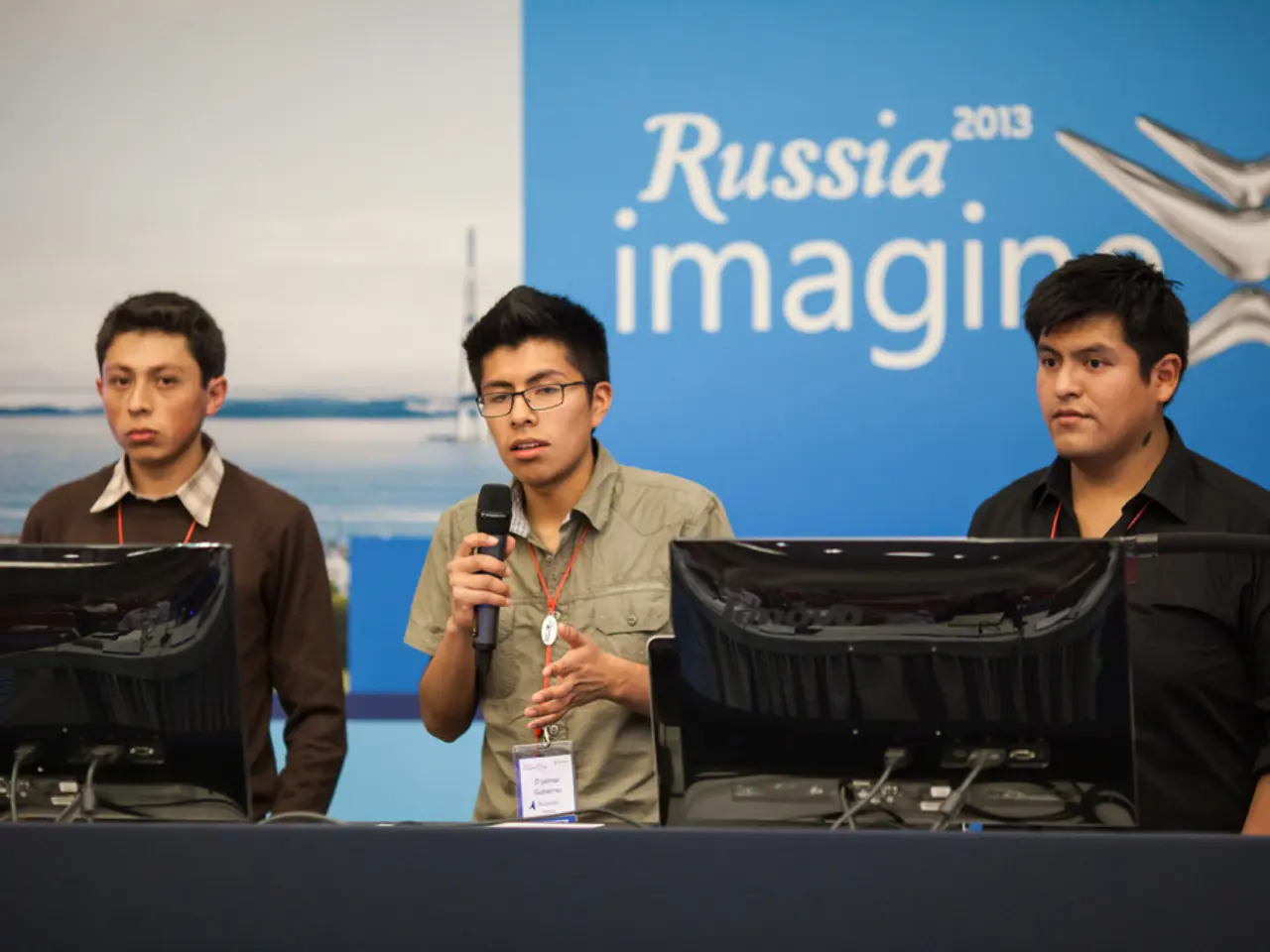Unveiling the Depths of Deception: Exploring the Realms of Misinformation and Artificial Intelligence Manipulation
In the rapidly evolving digital age, Artificial Intelligence (AI) has made its mark on the political landscape, transforming the way campaigns are run and elections are fought. From generating campaign materials to enhancing voter engagement, AI is reshaping the electoral process in various ways. However, its use also raises significant concerns about election integrity, voter behavior, and election security.
In Indonesia, AI was employed to create appealing cartoon avatars for political candidates, such as Prabowo Subianto's Midjourney-generated avatar. Meanwhile, in Pakistan, the Pakistan Muslim League utilised AI-based active social listening to better target voters. Similarly, Ganjar Pranowo, another Indonesian candidate, leveraged OpenAI models to predict talking points and offer real-time social media alerts during his campaign.
AI has also been used to allow political figures to communicate with voters despite facing restrictions. Imran Khan, the de facto leader of the opposition in Pakistan, used ElevenLabs' software to turn his notes, smuggled out of prison, into audio-speeches for online rallies.
However, AI's impact on elections extends beyond enhancing communication. It has been used strategically to influence voter targeting, foreign interference, and misinformation weaponisation. AI can identify and target specific voter groups with disinformation or suppression tactics to influence turnout or skew participation, a practice known as algorithmic voter suppression. AI-powered platforms can also analyse massive amounts of data to tailor political messaging narrowly to individuals' psychological and behavioural profiles, potentially manipulating opinions and voting behaviour covertly, a phenomenon known as hyper-personalized microtargeting.
AI has also been at the heart of foreign interference in elections. Sophisticated AI tools have been leveraged in coordinated campaigns to interfere in elections, as exemplified by Russian influence operations tainting Romania's 2024 presidential election and forcing a repeat vote.
Moreover, AI-generated deepfakes spread false narratives or provoke social division and political polarization, impacting public discourse and undermining trust in democratic processes. In Indonesia, for instance, a deepfake showed the country's ex-dictator Suharto being brought back to life to endorse a candidate in the country's presidential race.
On the defensive side, AI has been employed to combat disinformation. AI-powered fact-checking applications, chatbots, and AI avatars for fact-checking during elections are being used to counter the spread of false information. AI technologies were also used for voter research in Indonesia, with Pemilu.AI being the most significant example. The platform scrapes the web, collects data on common discussion points, and helps candidates identify issues relevant to their constituents.
In the UK, concerns about the use of AI in elections have been raised, with a doctored video of Wes Streeting, the Shadow Health Secretary, being spread on social media during the approaching 2024 general election.
As AI systems become more pervasive, multi-stakeholder approaches involving governments, civil society, and technology firms are recommended to harness beneficial applications while mitigating risks and abuses. The World Economic Forum has expressed similar concerns, stating that AI could radically disrupt electoral processes in several economies.
A study conducted during the first six months of 2024 examined the use of AI across a small number of elections, including the legislative elections in Bangladesh, Pakistan, Portugal, and South Africa, and both the legislative and presidential elections in Indonesia and Taiwan. The study identified five different macro-themes of AI use, each identifying a distinct aim: disinformation, countering disinformation, voter engagement, political research, and producing campaign materials.
In conclusion, AI's roles in elections go well beyond fabricating content to discredit candidates, encompassing strategic voter targeting, foreign interference, misinformation weaponisation, security enhancements, and media authentication efforts. As we move forward, it is crucial to navigate this digital landscape with caution, ensuring that the benefits of AI are harnessed while mitigating its potential risks and abuses.
- In addition to influencing voter targeting and communication, AI has also been used for political research and the production of campaign materials in various elections across the world.
- As the study conducted in 2024 revealed, AI's roles in elections are diverse, encompassing countering disinformation, voter engagement, and even foreign interference, necessitating careful navigation and multistakeholder approaches to harness its benefits while minimizing potential risks.




